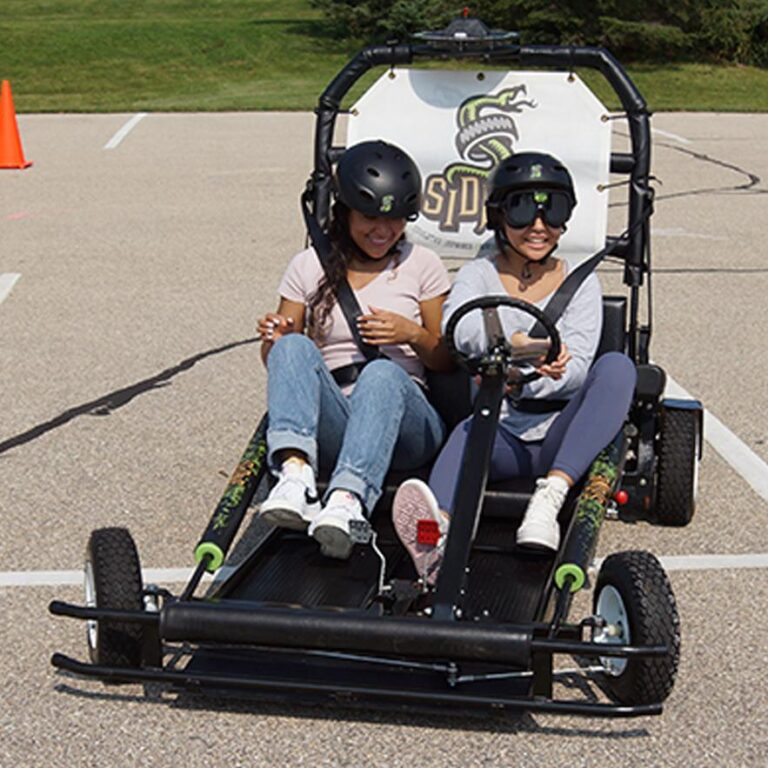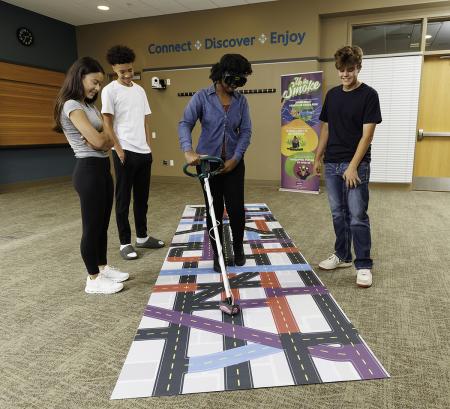
Young Drivers Build Safe Driving Skills with Plan My Ride
At Fatal Vision® by Innocorp, we are proud to partner with iRT to promote Plan My Ride, an affordable and effective research-based eLearning program that teaches new drivers essential skills

There is a lot of misinformation, myths, and misconceptions around THC impairment. In this blog, we’ll cover some of these common myths, give factual resources, and cover the importance of creating a well-rounded, hands-on educational course for students about THC impairment.
There are many misconceptions about THC, including the idea that it impairs cognitive function in all users to the same degree. In reality, the effects of THC vary widely and are influenced by multiple factors, such as the amount consumed, the individual’s tolerance level, and their unique brain chemistry. According to the National Institutes of Health, ongoing research continues to explore these variables and their impact on THC’s effects. While it is widely understood that THC can impair cognitive and perceptual functions, the degree of impairment differs from person to person. Tools like the Fatal Vision THC Goggles and their accompanying activities are designed to help educators demonstrate some of these potential effects, including challenges with short-term memory, executive function, visual perception, and motor coordination.
Another common myth is that THC is non-habit forming, or in other words, people using this drug will not become addicted to using THC. The CDC states this is false as well, and cites that up to 3 people in 10 “have a cannabis use disorder.”
Lastly, another common myth is that certain methods of consuming THC, such as vaping or smoking, are safer than others. According to the CDC, this is false. Regardless of whether THC is smoked, vaped, or consumed in edibles, it can lead to similar impairments and health risks. Educators can demonstrate these effects to students by using Fatal Vision THC Goggles and activities, which simulate the impact of THC use no matter how it is consumed.
Fatal Vision THC Goggles and activities demonstrate how THC use can affect cognitive abilities, such as memory, motor coordination, and reaction time and help drive home the dangers, particularly with driving under any influence of THC. A great example is the ball toss exercise, included in the THC Kits, which is effective in showing delays in decision-making and motor control. Driving simulators like the Roadster Pedal Kart and the SIDNE vehicle create an environment for individuals to learn about serious topics in an engaging way.
Creating an educational plan for your students or young adults in your community is a vital part of helping them make safer, smarter choices. Fatal Vision products are effective when combining the hands-on learning of the products with open communication like allowing students to ask questions or share what they’ve heard about THC and usage. Having a discussion and debunking some of these common myths they may have heard is helpful when introducing simulation goggles. Doing this in a safe, welcoming space invites participation and dialog around the subject.
Another important aspect of education around THC impairment is giving them the opportunity to experience a hands-on demonstration in a controlled environment. Using the Fatal Vision THC Goggles, alongside many of the activities like the SIDNE vehicle or the ball toss exercise, can help students understand THC perceptual impairment and dangers of driving. An important aspect of successfully using the goggles in an education program is having discussions after the activities and getting feedback on what surprised students. Offer safer choices and encourage students to seek resources and research healthier activities.
It’s necessary to include statistics and figures in an educational environment; teaching students or young adults about THC needs to come from multiple angles, like first-hand accounts, statistics, videos, banners, and hands-on learning. By incorporating facts from top-tier resources, you’ll help solidify the message.
By encouraging research, communication, and learning opportunities for students or young adults, educators can help create a meaningful and impactful campaign about THC impairment. Learn more facts about our THC Goggles, do’s and don’ts for using simulation goggles, or addressing laughter while using goggles in our blog. Reach out to our expert team for tips and recommendations on the right THC kits and products for your program, or request a quote today.
Innocorp is the pioneering developer of Fatal Vision® Goggles and other experiential learning tools designed to educate on the dangers of impairment and promote risk prevention. Innocorp provides impactful, hands-on resources used globally by law enforcement, educators, and safety professionals to demonstrate the consequences of substance use, risky driving, and other dangerous behaviors.
We’d love to online chat! We are available Monday-Friday from 8am-5pm (CST):
Or schedule a time for a consultation:

At Fatal Vision® by Innocorp, we are proud to partner with iRT to promote Plan My Ride, an affordable and effective research-based eLearning program that teaches new drivers essential skills

In a THC awareness campaign, it’s important to understand THC impairment, its effects on the body, and the detrimental impact it can have. As educators, it’s crucial to provide

It’s important to incorporate hands-on learning when teaching students about the dangers of mixing THC with other substances. When building an educational course for students, it’s important to address
CUSTOMER SUPPORT
Buy America Act
Contact
GSA Customers
Returns
Shipping
Warranties
My Account
Login
Create an Account
INNOCORP HEADQUARTERS
500 S Nine Mound Road
P.O. Box 930064
Verona, WI 53593-0064
800-272-5023 Mon-Fri 8-5 CT
608-848-5558 Fax
©2025 Innocorp. All Rights Reserved